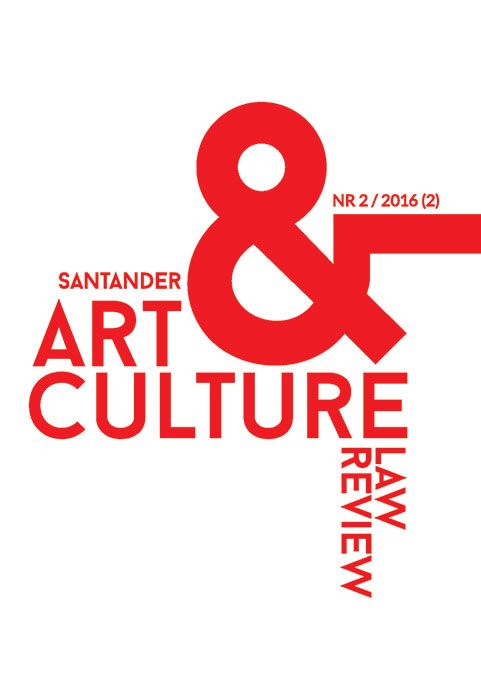Greek Law 4355/2015 Implementing Directive 2014/60/EU on the Return of Cultural Objects Unlawfully Removed from the Territory of a Member State
Greek Law 4355/2015 Implementing Directive 2014/60/EU on the Return of Cultural Objects Unlawfully Removed from the Territory of a Member State
Author(s): Irini A. StamatoudiSubject(s): Museology & Heritage Studies, International Law
Published by: Wydawnictwo Uniwersytetu Jagiellońskiego
Keywords: European Union; Directive 2014/60/EU; Council Directive 93/7/EEC; movement of cultural goods; Greek implementation of Directive 2014/60/EU; illegal trade in art; unlawful movement of artefacts
Summary/Abstract: Greece takes a strong stance towards the protection of cultural heritage and the return of cultural goods to their country of origin. Several cases in recent years have taken place with regard to cultural goods that have been returned from third countries to Greece, and which have left the country in either an illegal or an ambiguous manner. Returns were affected either on the basis of legal proceedings or an amicable resolution. Greece’s role in the EU and international fora has been important for the protection of cultural heritage. Greek law is one of the most comprehensive and protective laws in the area, especially by reason of the fact that the country has occasionally suffered from looting, is rich in cultural treasures and does not always offer adequate means to effectively protect all treasures found in its soil and waters. This article examines the notion of a “cultural object” under Greek law and what constitutes – according to this law – “unlawful removal” from the country’s territory. It also discusses how Greek courts understand the notion of “due care and attention”, according to Article 10 of the Directive 2014/60/EU, and why it is important that in cases where return is ordered, the possessor is the one to demonstrate that s/he exercised due care and attention in acquiring the object in order for her/him to be compensated. Comments are made as to changes that need to be introduced in Greek law by reason of implementing the Directive. Finally, this article discusses future functioning and efficiency of this new EU legal instrument.
Journal: Santander Art and Culture Law Review
- Issue Year: 2/2016
- Issue No: 2
- Page Range: 57-70
- Page Count: 14
- Language: English

